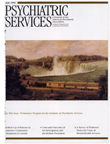Reduced substance-abuse-related health care costs among voluntary participants in Alcoholics Anonymous
Abstract
OBJECTIVE: This study examined differences in outcomes, alcoholism treatment utilization, and costs between alcoholic individuals with no previous treatment history who chose to attend Alcoholics Anonymous (AA) or to seek help from a professional outpatient alcoholism treatment provider. METHODS: Participants in this three-year prospective study were recruited at alcoholism information and referral services and at detoxification units in the San Francisco Bay Area. Chi square and t tests and repeated-measures analyses of variance were used to examine data gathered from interviews with 201 participants at baseline and at one and three years. RESULTS: At baseline, participants who chose to attend AA meetings (N = 135) were not significantly different from those who chose professional outpatient treatment (N = 66) in sex, marital status, employment, race, and symptoms of alcohol dependence and depression. However, AA attendees had lower incomes and less education and experienced more adverse consequences of drinking at baseline than did those who sought outpatient care, suggesting somewhat worse prognoses for the AA group. Over the three-year study, per-person treatment costs for the AA group were 45 percent (or $1,826) lower than costs for the outpatient treatment group. Despite the lower costs, outcomes for the AA group at both one and three years were similar to those of the outpatient treatment group. CONCLUSIONS: Voluntary AA participation may significantly reduce professional treatment costs. Clinicians, researchers, and policymakers should recognize the potential health care cost offsets offered by AA and other self-help organizations.
Access content
To read the fulltext, please use one of the options below to sign in or purchase access.- Personal login
- Institutional Login
- Sign in via OpenAthens
- Register for access
-
Please login/register if you wish to pair your device and check access availability.
Not a subscriber?
PsychiatryOnline subscription options offer access to the DSM-5 library, books, journals, CME, and patient resources. This all-in-one virtual library provides psychiatrists and mental health professionals with key resources for diagnosis, treatment, research, and professional development.
Need more help? PsychiatryOnline Customer Service may be reached by emailing [email protected] or by calling 800-368-5777 (in the U.S.) or 703-907-7322 (outside the U.S.).



